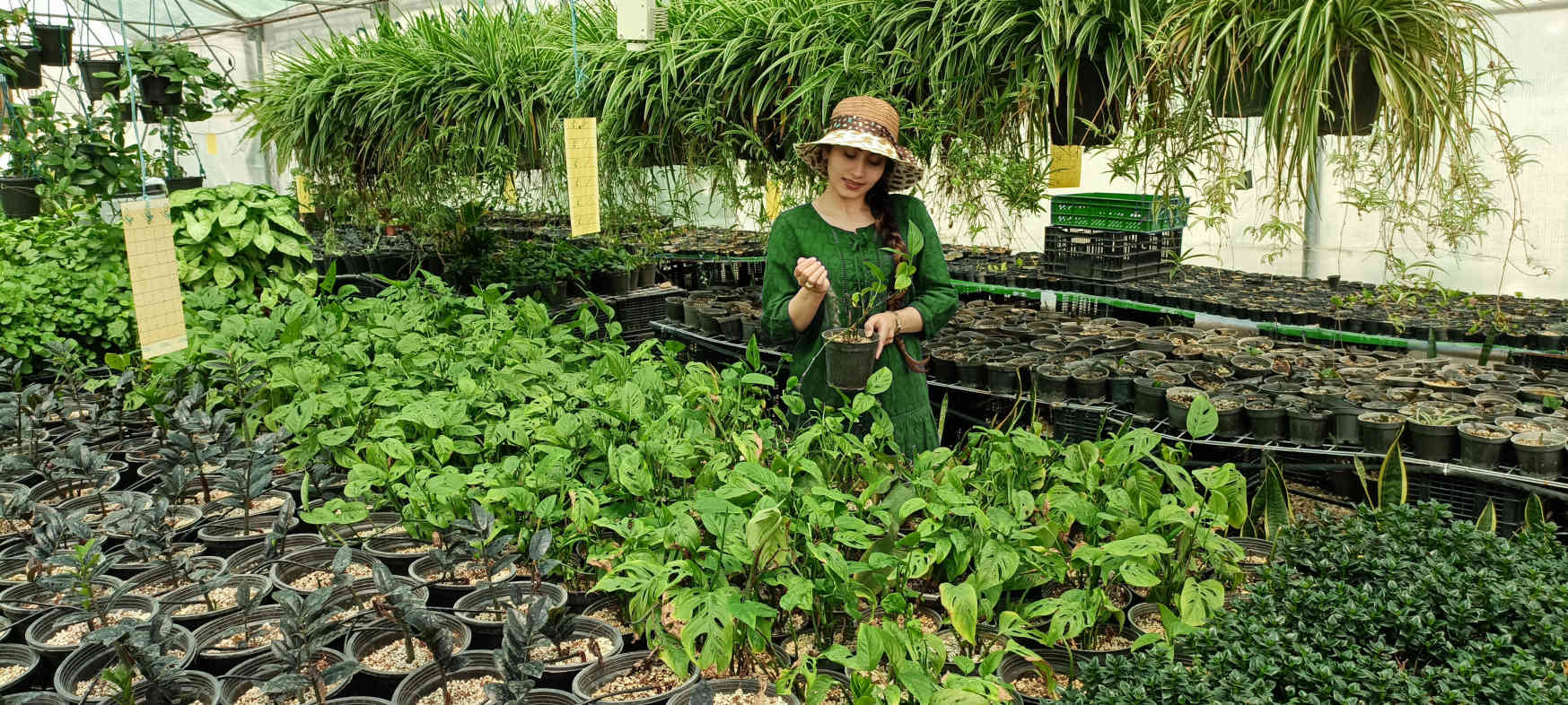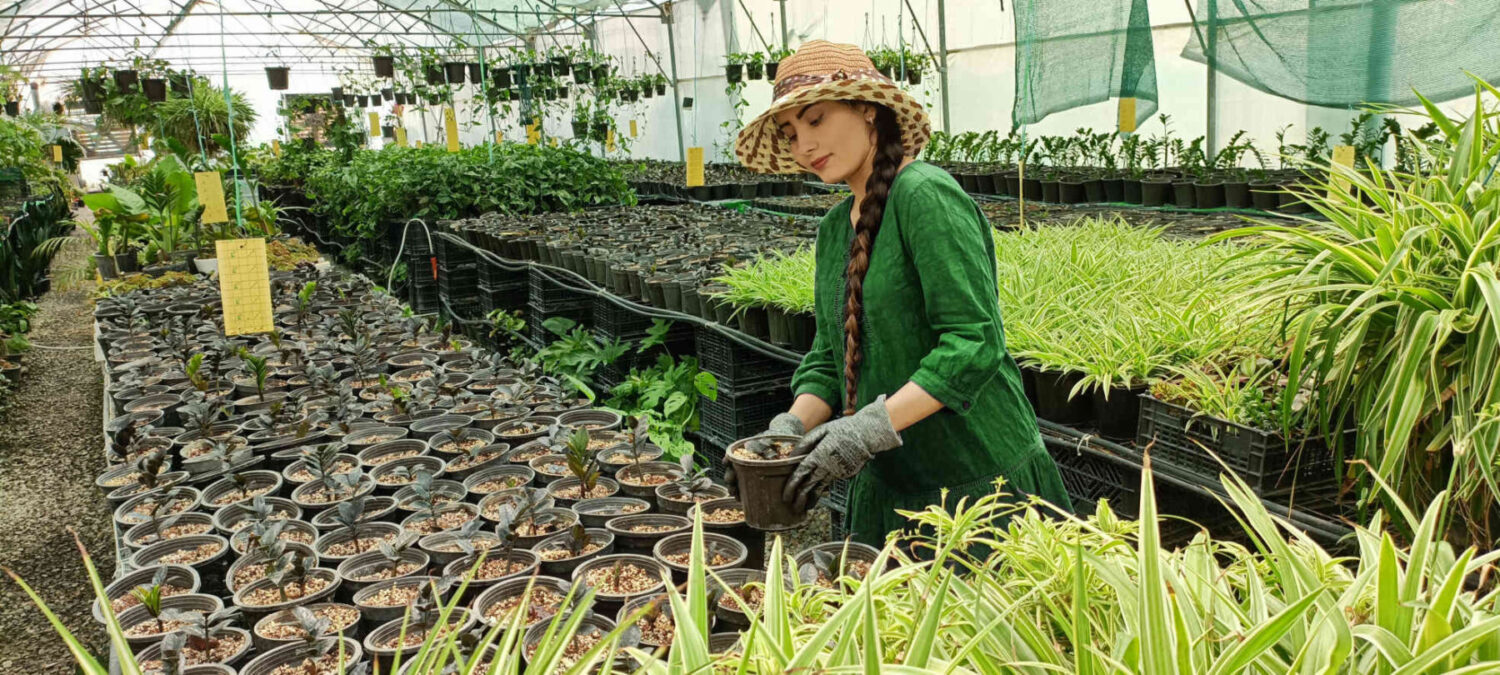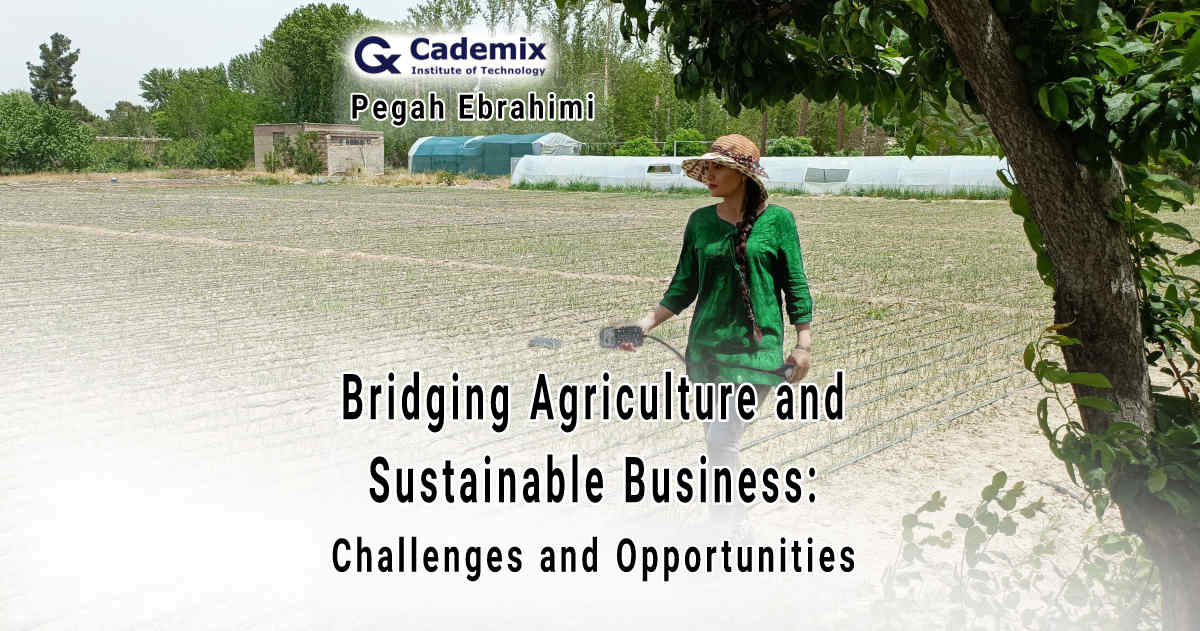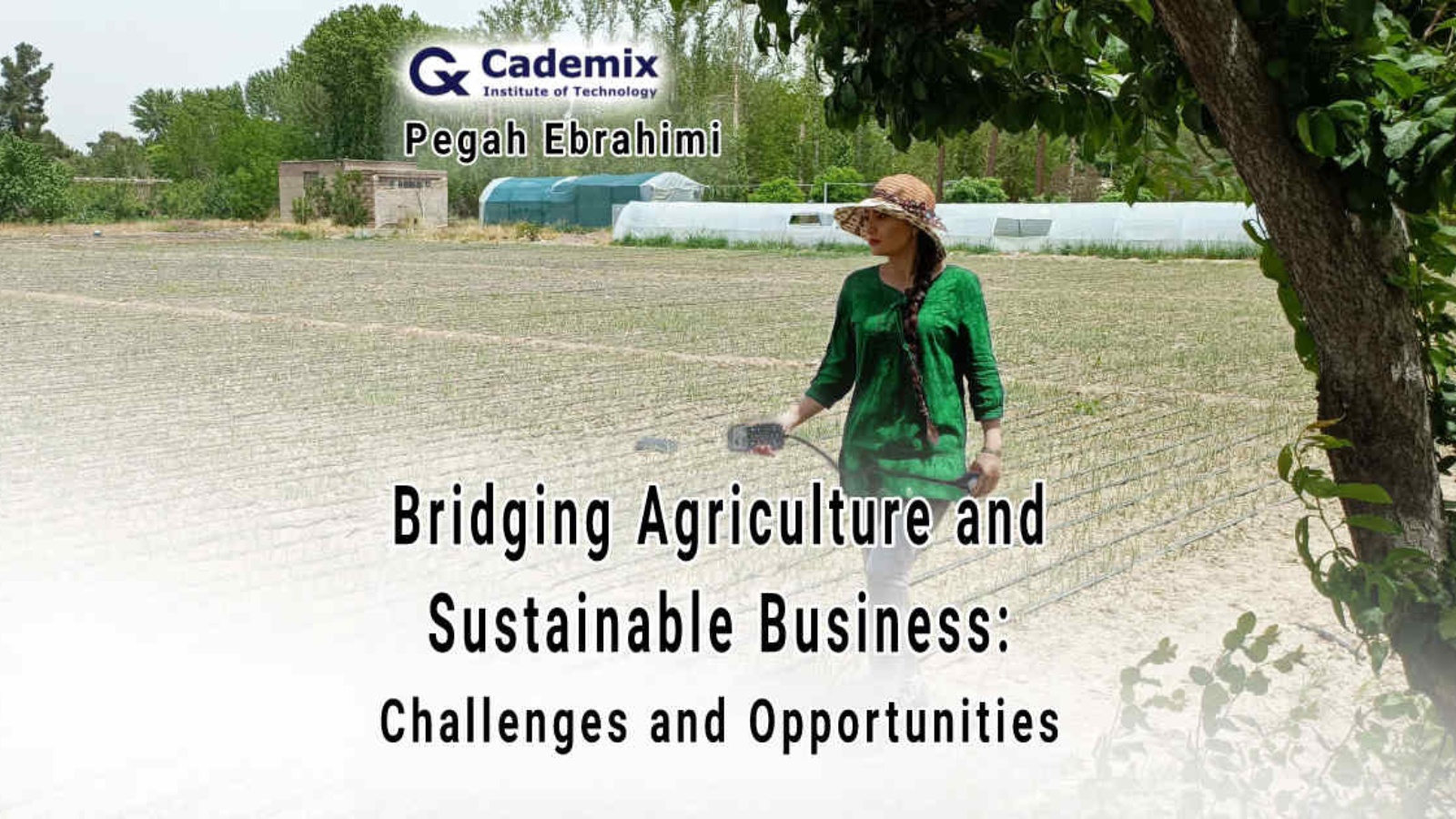As the world grapples with environmental challenges, sustainable business practices in agriculture have become increasingly vital. However, adopting these practices presents challenges, such as the need for education and awareness, upfront investment, and changes in farming methods. To address these challenges, businesses can take advantage of the emerging technologies and government support to promote sustainable practices. Moreover, businesses can also leverage these challenges as opportunities to differentiate themselves in the market and contribute to a more sustainable future for all. This article explores the intersection of agriculture and sustainable business, highlighting the challenges, opportunities, and career prospects in this field.
By Pegah Ebrahimi and Javad Zarbakhsh, Cademix Institute of Technology


Introduction:
As the world grapples with environmental challenges, the need for sustainable business practices is becoming increasingly vital. Agriculture is a sector that has the potential to positively or negatively impact the environment, and sustainable business practices in this area are of utmost importance. This article aims to explore the intersection of agriculture and sustainable business, highlighting the challenges and opportunities in this field.
Challenges:
One of the most significant challenges in bridging agriculture and sustainable business is the tension between profit and sustainability. Many businesses in the agricultural sector prioritize profits over sustainability, leading to negative environmental impacts such as deforestation, soil erosion, and pollution. Additionally, the lack of regulatory frameworks and incentives for sustainable agricultural practices makes it difficult for businesses to adopt sustainable practices without facing economic disadvantages compared to competitors.
Another challenge is the need for education and awareness. Farmers and other stakeholders in the agricultural sector may not be fully aware of the benefits of sustainable practices or may not have access to the necessary resources to implement them. Also, implementing sustainable practices may require significant upfront investment or changes in farming methods, which can be challenging for businesses to implement.

Maximizing Profits while Promoting Sustainable Business Practices in Agriculture
In agriculture, maximizing profits is essential for the success of any business. However, it is also important to consider sustainable business practices that not only benefit the bottom line but also contribute to environmental sustainability. Here are some important parameters that can be considered to increase profits in agriculture while also promoting sustainable business practices:
- Efficient use of resources such as water, energy, and fertilizers can reduce costs and increase yields, leading to higher profits.
- Diversification of crops and livestock can help reduce risks associated with climate change and market fluctuations, contributing to long-term sustainability and profitability.
- Sustainable land management practices, such as conservation tillage and crop rotation, can improve soil health, increase productivity, and reduce erosion, leading to better profits over time.
- Integration of precision agriculture technologies can help farmers optimize their use of resources and reduce waste, leading to higher profitability.
- Marketing of sustainable products can provide a premium price for agricultural products, contributing to higher profitability.
All of these parameters are in favor of international sustainable business practices. Sustainable business practices that increase profits while also contributing to environmental sustainability are essential for long-term success in agriculture. By adopting sustainable business practices, businesses can maximize profits while also contributing to a more sustainable future for all.

Opportunities:
Despite these challenges, there are many opportunities for businesses to adopt sustainable practices in agriculture. One opportunity is the growing demand for sustainable products from consumers, who are becoming increasingly environmentally conscious. Another opportunity is the potential for sustainable agriculture to contribute to the United Nations’ Sustainable Development Goals, particularly in the areas of poverty reduction, food security, and environmental sustainability.
There are many emerging technologies that can support sustainable agricultural practices, such as precision agriculture, vertical farming, and regenerative agriculture. These technologies can help farmers use resources more efficiently and reduce waste, contributing to sustainability.
Education and Awareness
One of the main challenges in promoting sustainable business practices in agriculture is the lack of education and awareness. However, this challenge also presents an opportunity for businesses to take the lead in educating stakeholders in the agricultural sector about the benefits of sustainable practices. Examples of practical solutions include:
- Providing education and training programs for farmers and stakeholders in the agricultural sector to raise awareness of sustainable practices.
- Creating partnerships with universities and research institutions to develop new technologies and best practices that promote sustainable agriculture.
- Creating online resources and knowledge-sharing platforms to provide easy access to information on sustainable practices.
Upfront Investment and Changes in Farming Methods
Adopting sustainable practices in agriculture can require significant upfront investment or changes in farming methods. While this challenge may seem daunting, it presents an opportunity for businesses to differentiate themselves in the market by demonstrating their commitment to sustainability. Examples of practical solutions include:
- Implementing precision agriculture technologies to optimize resource use and reduce waste.
- Diversifying crops and livestock to reduce risks associated with climate change and market fluctuations.
- Developing sustainable land management practices, such as conservation tillage and crop rotation, to improve soil health and increase productivity.
Government Support and Incentives
To promote sustainable business practices in agriculture, governments can play a crucial role in providing support and incentives. This presents an opportunity for businesses to collaborate with government agencies and other stakeholders to create a supportive environment for sustainable practices. Examples of practical solutions include:
- Providing financial incentives for businesses to adopt sustainable practices, such as tax credits or subsidies.
- Developing regulatory frameworks and incentives that encourage sustainable agricultural practices.
- Creating partnerships between government agencies, universities, and businesses to promote sustainable agriculture.
Collaboration and Knowledge Sharing
Collaboration and knowledge sharing can also help address the challenges of promoting sustainable business practices in agriculture. Businesses can take the lead in fostering collaboration and knowledge sharing among stakeholders in the agricultural sector. Examples of practical solutions include:
- Creating partnerships between businesses, universities, and research institutions to develop sustainable technologies and best practices.
- Participating in industry associations and trade organizations to promote sustainable agriculture and share knowledge.
- Collaborating with other stakeholders in the agricultural sector, such as farmers and suppliers, to share resources and knowledge on sustainable practices.
Therefore, promoting sustainable business practices in agriculture requires a commitment to education and awareness, upfront investment, government support and incentives, and collaboration and knowledge sharing. By taking practical steps to address these challenges, businesses can differentiate themselves in the market and contribute to a more sustainable future for all.
Career Opportunities in Agriculture and Sustainable Business
As the world becomes increasingly focused on sustainability, there are many career opportunities emerging in the field of agriculture and sustainable business. These career opportunities not only offer a chance to make a positive impact on the environment but also provide a sense of purpose and fulfillment. Examples of career opportunities in agriculture and sustainable business include:
- Sustainable Agriculture Specialist – A specialist who focuses on sustainable agricultural practices, including New Plant Breeding Technologies (NPBTs), soil management, crop rotation, and sustainable pest control.
- Environmental Compliance Specialist – A specialist who ensures that businesses comply with environmental regulations and adopts sustainable practices.
- Sustainability Manager – A manager who oversees the implementation of sustainable practices in a business and ensures that sustainability is integrated into all aspects of the organization.
- Green Marketing Specialist – A specialist who promotes sustainable products and services to consumers, creating demand for sustainable products.
- Sustainable Supply Chain Manager – A manager who oversees the implementation of sustainable practices in the supply chain, including sustainable sourcing and logistics.
- Climate Change Analyst – An analyst who studies the impact of climate change on agriculture and develops strategies to mitigate the impact.
How to use opportunities for sustainable agricultural development:
By rising mean temperatures, heat and water stress, and increased frequency of weather extremes, climate change will probably have a negative impact on agricultural production. The poorest populations in Africa and Asia will be severely hurt by climatic disasters, not only because they are more susceptible to price and income shocks, but also because a large portion of them depend on agriculture. Sustainable agriculture and food security cannot become a reality anytime soon without new technologies. For example, Gene-edited crops and other new plant breeding technologies (NPBTs), such as GMOs, have the potential to completely alter agriculture. They may result in improved crop resilience to climate stress, increased crop yields, decreased use of chemical fertilizers and pesticides, lower postharvest losses, and more nutrient-dense foods.

Conclusion:
Sustainable agriculture is crucial for addressing environmental challenges, and sustainable business practices in this area are essential for a sustainable future. By addressing the challenges and seizing the opportunities, businesses can contribute to a more sustainable future while also remaining economically viable. Through education, awareness, and the adoption of new technologies, the agriculture sector can become more sustainable, helping to create a better world for future generations.
As an agricultural engineer with a passion for sustainability, I believe that bridging agriculture and sustainable business is key to creating a better future. By promoting sustainable business practices and educating stakeholders in the agriculture sector, we can contribute to a more sustainable future for all.

Keyboard Related to Agriculture and Sustainable Business
Agriculture, Environment, Plant Production, Consumption, Management, International Business, Sustainable Business, Environmental Protection, Investment, Profit, Cademix, Dr Javad Zarbakhsh, Pegah Ebrahimi

